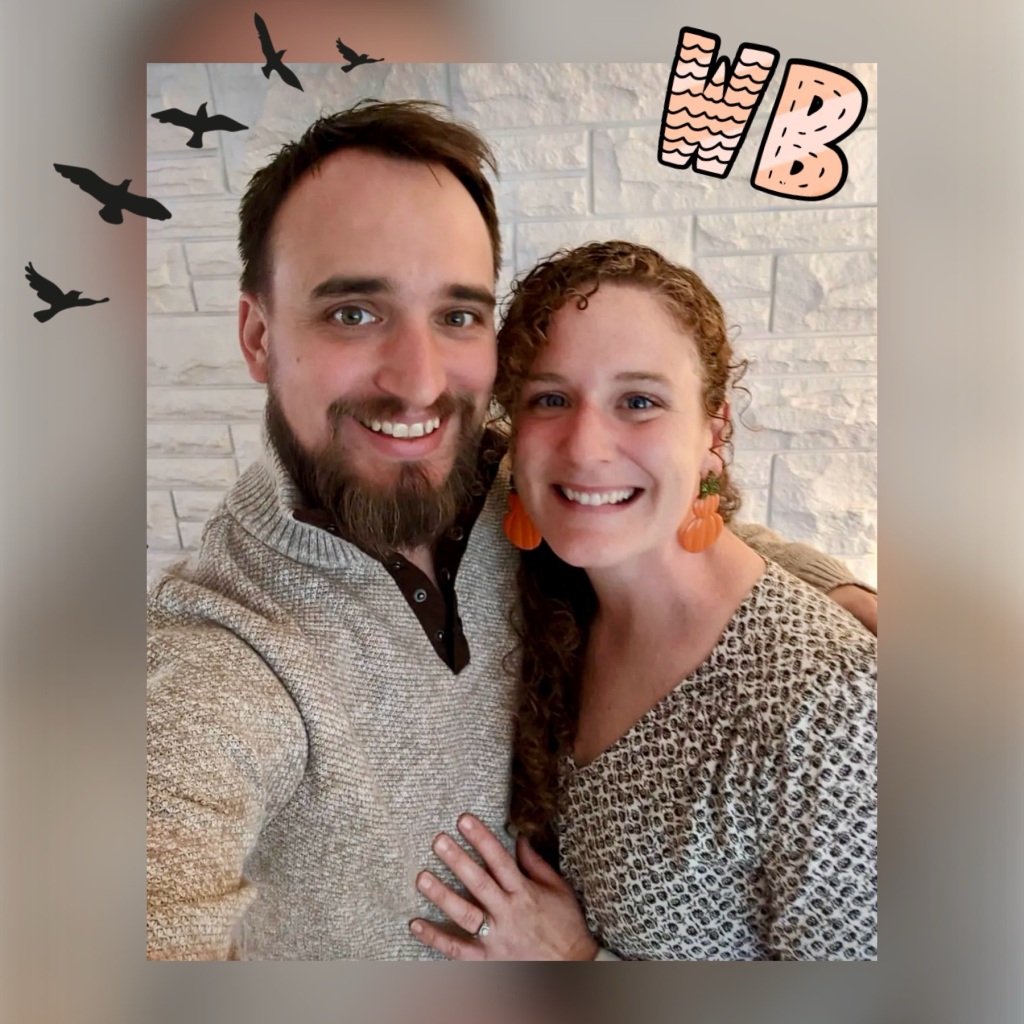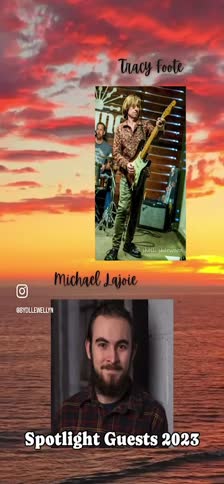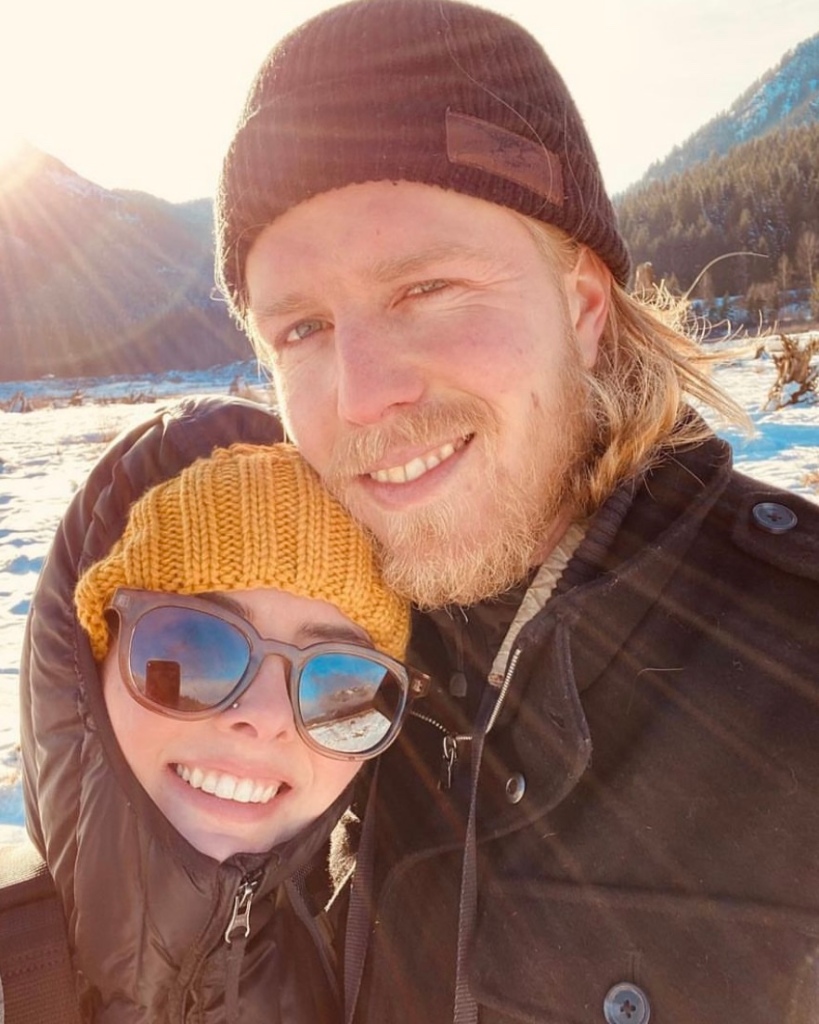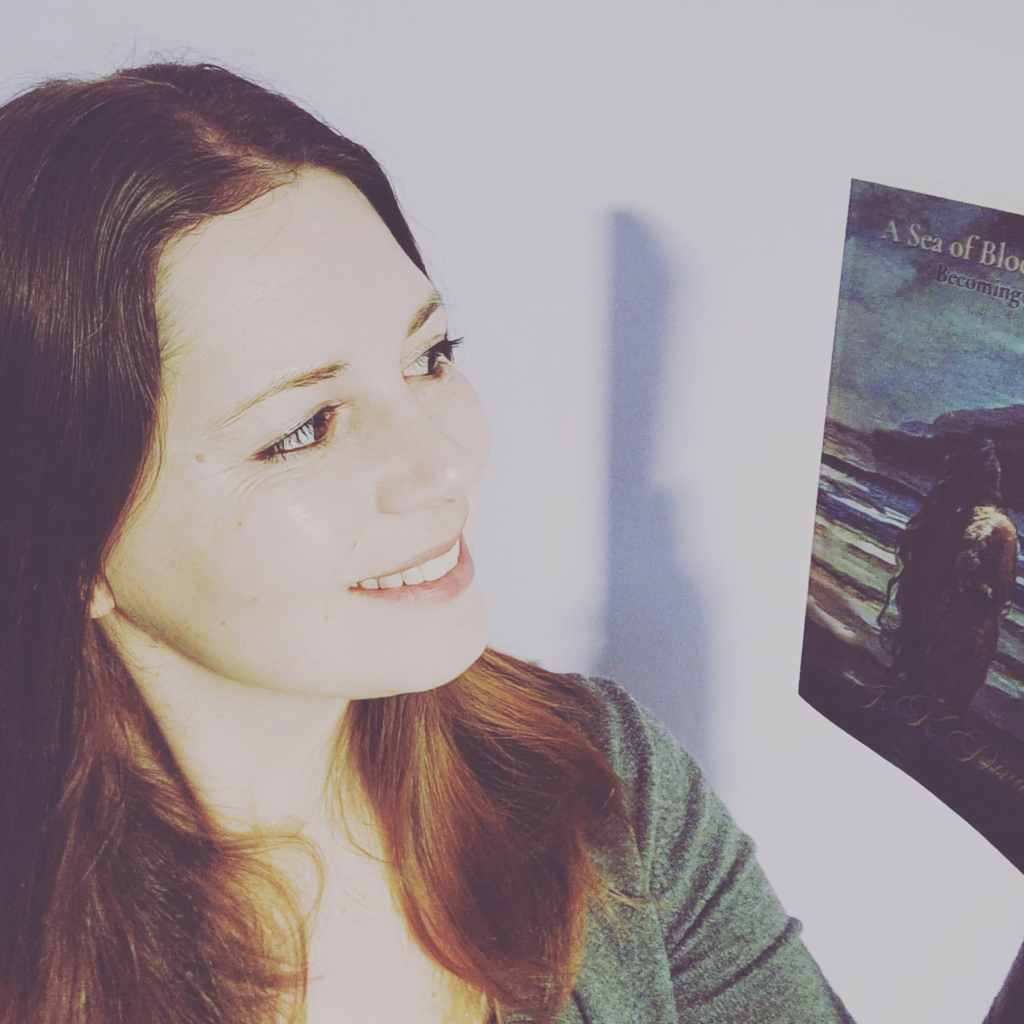“Write one. Read ten. Win thousands… The peer-powered short story competition where everyone receives oodles of feedback.”
Writing Battle
As a participant, I can attest to the oodles of feedback, which is one half of the backbone of this engaging community. The other half is Max and Teona. Last summer, I visited with the dynamic duo as they prepared to launch their revamped platform—and soon after—what was fun got funner! We’re checking in this month to see how it’s going.
Here’s what one member had to say about Writing Battle.
“This is a growing community with a mix of experienced and curious writers. Sharing your work and feedback in the forums is invaluable.”
Matt Gamarra
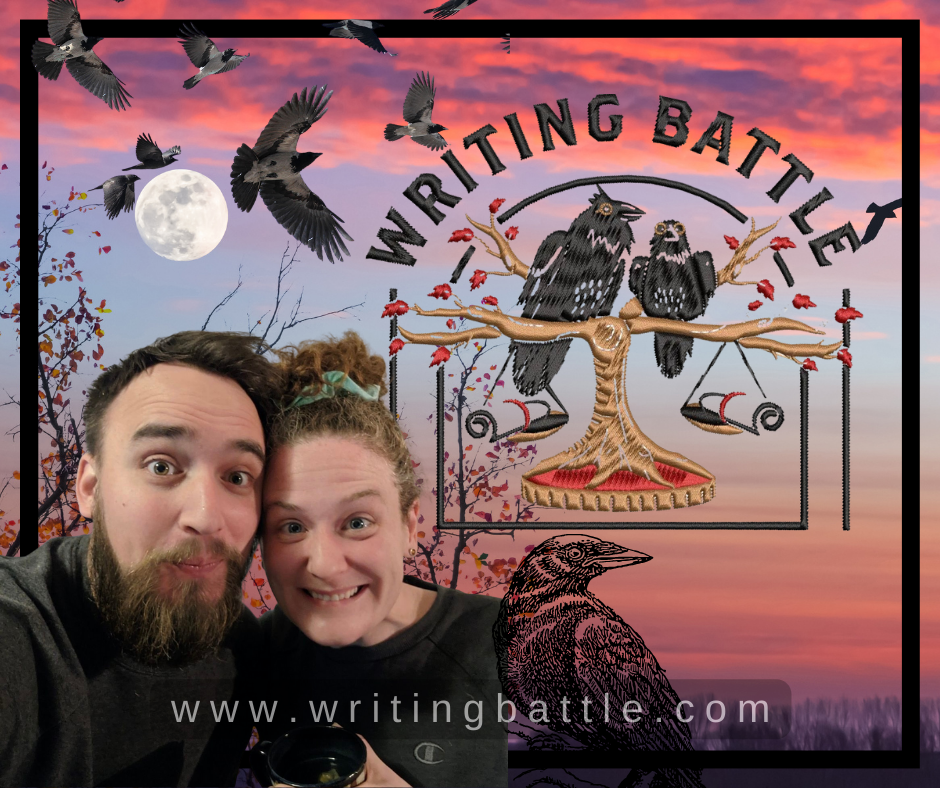
In The Beginning
We learned during their visit in 2023 that software engineer Max Bjork wanted a chance to use his creativity in his working life. Like many of us back in 2020, the disruptions to our lives and routines wrought by the pandemic inspired big changes. As an amateur screenwriter, Max turned his creative aspirations to writing contest platforms, recognizing a need to offer more to participants like a robust and engaging community, easier navigation, and more ways to have fun during the contest. Max gave up his job, took over daytime parenting so Teona could get back to work after maternity leave as an EEG Technologist, and started creating. See our previous chat for the couple’s in-depth discussion on how Writing Battle (“WB”) got started.
The unique structure, engaging graphics, and shining personalities behind Writing Battle were an instant hit, and WB captured my attention from the first Instagram post.
Let’s Meet Writing Battle!
Thanks both of you for coming back for a chat in 2024! I’ve been dying to check in to see how things are going–in general–but especially since you launched the new design. What is your biggest highlight since July? And if you each have a take on that, we’d love to hear both perspectives!
Max: Thanks for having us back, Darci! I think it was the last interview we did with you that we announced a redesign of the site. Cool to do this again a year later and everything is in full swing with the new site. The biggest highlight I think is that this “product” (if you want to call it that) is feeling more and more complete. We’re really just refining at this point and that feels weird in a way since we spent years trying very different battle structures.
Teona: Things are great! We have come leaps and bounds when it comes to restoring some stability to our life when the battle gear comes off. There have been a lot of things that we have been able to put a happy little book-end on so that we can spend more focused time and energy on the business. A highlight for me would be the merch store–it is a part of Writing Battle that I helm and gives me more sense of connection to the community since I’m not a programmer and don’t have much to offer in terms of site features.
Darci: In other words, you both are totally in the groove. Awesome!
We talked about your phenomenal success last summer. There have been two Battles since then. Two of my peeps (a Canadian writing friend and my niece) signed up for the Fall Short Story Battle, which I participated in, and my niece participated in the Winter Flash Fiction event that just ended. So, if every member pulls in just one or two… yikes! This might be a good place to insert that WB’s slogan rocks! Write one. Read ten. Win thousands. Are we talking about exponential growth? What are the overall stats since last summer?
Max: Thank you for spreading the word about Writing Battle! You know, the slogan actually came from the community. If I recall correctly, Cristi Lynn, a previous winner from an early Screenwriting Battle suggested that slogan. She said it on the Forum and I immediately asked if I could use it. When we started these Battles we really thought that the reading part of the contest was going to be a chore. As it turns out, it’s everyone’s favourite part about the contest, so why not highlight the reading aspect.
Teona: Definitely seeing something along an exponential growth curve. It’s still amazing to us! It looks like we might 3X the Spring 2023 Battle. And, like you say, if one person pulls in one or two friends to join in the fun, it really just takes off from there.
Our New Year’s resolution with WB was to make long-term realistic and holistic goals for the year. So instead of saying we need to accomplish X,Y,Z… we set a single goal of 3000 participants for the Autumn Battle. We’re then able to reverse-engineer a path to that goal and then it has been more figuring out what that goal looks like in the shorter term in regards to the Spring and Summer battles. What has been so incredible and exciting has been seeing the numbers for the upcoming Spring Battle SMASHING the shorter goal in place for the Spring. It really looks like there is some snow-balling happening and we are just grateful the site broke when it did last year because there is no way this growth would have been stable or sustainable on the old platform. Our new website handles traffic with ease because it is built on Google’s infrastructure.
Darci: So exciting to hear the numbers! And I love that about the slogan being a community contribution.
A little side story on the fall Battle. I hadn’t been in touch with my niece, Arianna, for a few weeks, and I had no idea she’d participated until a few weeks after it was over. We could easily have ended up critiquing each other’s stories… but we didn’t. Still, the idea that we could have added another fun element to the contest.
Her story was excellent, too. She does audio narration and has a one-minute audio excerpt of The Emperor’s Noose on her website’s project page. I was super happy with my story, Little Shop of Honeybees, as it was my first whodunnit and I enjoyed researching how to write a locked room mystery. Every time I participate, I’m glad I took on the challenge of a new genre I might never have tried otherwise and happier each time with the results.
How is the feedback stacking up since launching the revamped platform? Has the revised structure made a difference in participation aside from the momentum WB had going already?
Max: Absolutely. There were over 3.5 million words of feedback written in the Winter Battle. 1 million of those words were written after the Battle was complete in Debrief. There’s still a lot of improvements to the site coming, but the revamped platform has helped with that.
Darci: Mindboggling!
To get an idea of how far you’ve progressed in the short time since starting up WB, I’m throwing out multiple questions. 😊 Have you reached a place where the business is starting to run itself, or does it still require a lot of hands-on attention? How much of that is the fun stuff, and how much is business? What constitutes both? Is this turning into a full-time business for you both?
Teona: It is definitely turning into a full-time business for the both of us. Our youngest starts school in the fall which means that I will have time in the day to dedicate to WB and to work on things we would like to see evolve in the future. I would say the vast majority of what I do is fun. I think Max will likely say the same. There is a lot of hands-on. There is a LOT of reading–and not just stories. We are constantly on the forums trying to keep an eye on the community to ensure that needs are being met and that members maintain the constructive space we believe WB to be.
Max: I don’t think Writing Battle will ever run itself, but my job as the sole software dev is to build systems that make things easier on Teona and I during a Battle. It is ALL fun. Honestly, I still love every second of every Battle. It’s been a full time business for a while now. We will be building the tools for Forum mods soon, so that will help some of the stress. With so many passionate creatives, you want to put out fires as quickly as possible, so the Forums require a lot of attention. Having a few mods might ease the workload a bit.
Darci: I’m sure I speak for the community when I say your joy comes through and we appreciate all the hard work.
WB opened an online merchandise shop. My Two Crows sweatshirt just arrived! I’m excited about the designs and to have something to show for my battles. Also, being a sticker and planner fanatic, I adored getting your stickers in my happy mail! What a great idea to offer merchandise. How is that going? Will we see more offerings–more designs?
Teona: The merch store has been a lot of fun and I get a little giddy knowing that there are people out in the wild sporting the WB logo! I handle the majority of the merch dealings because it isn’t too time consuming now that it is up and running.
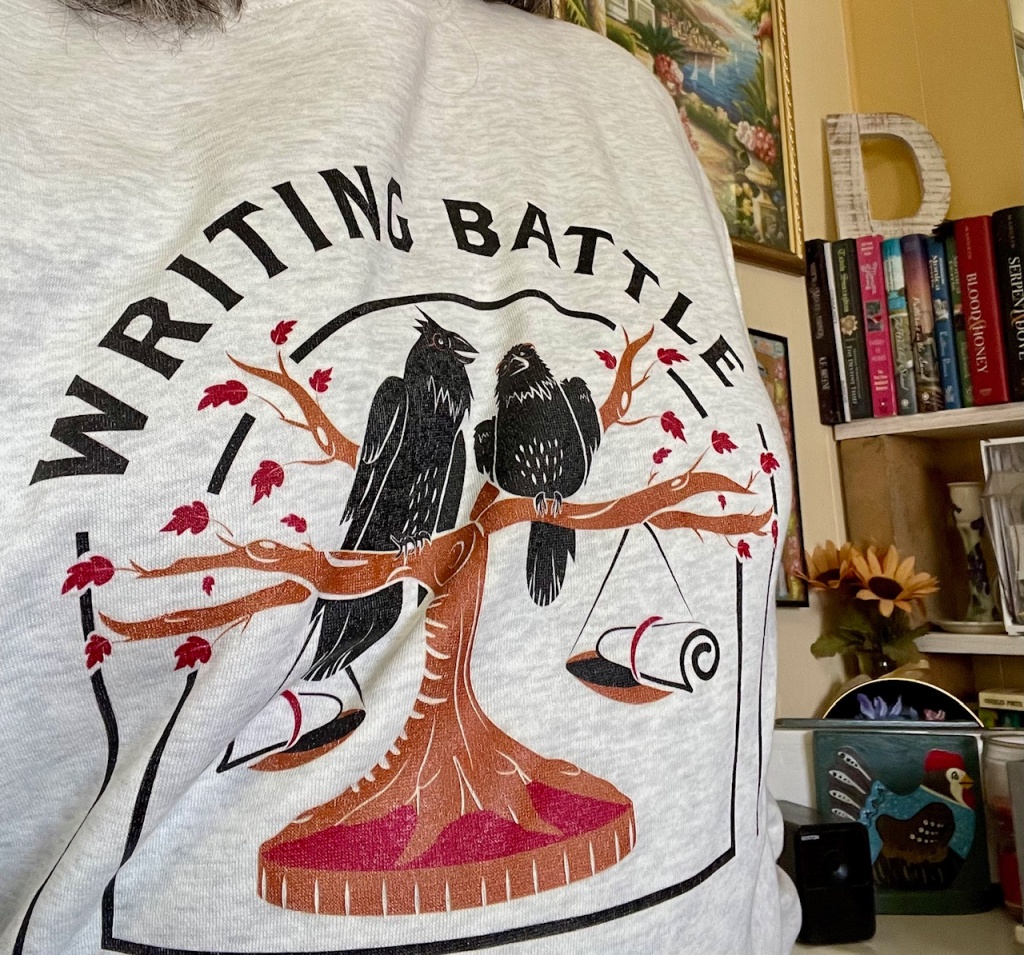
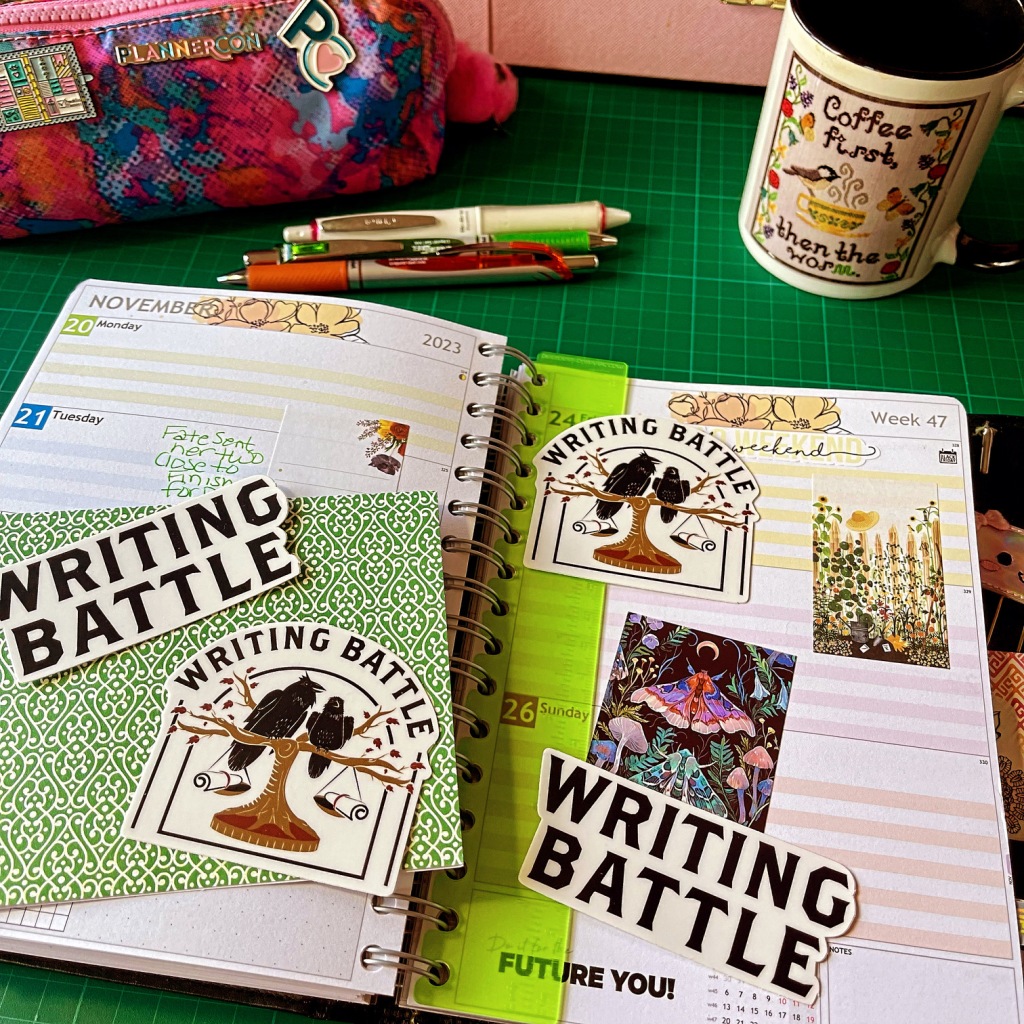
Once our littlest little starts school, I will have a lot more time to dedicate to expanding options and designs. I have been looking to source pottery mugs and had a prototype made but we are putting a lot of that on hold while we set up our new Tarot Card Decks that will hopefully be ready for purchase on the site late summer. I will let Max get into detail on this…
Max: Actually, I don’t want to go into too much detail because we’re still working on it. But I will say that there will be a card-collecting aspect to the site. You will get digital cards for participating in Battles and then if you order the physical cards, you’ll automatically get all of them digitally.
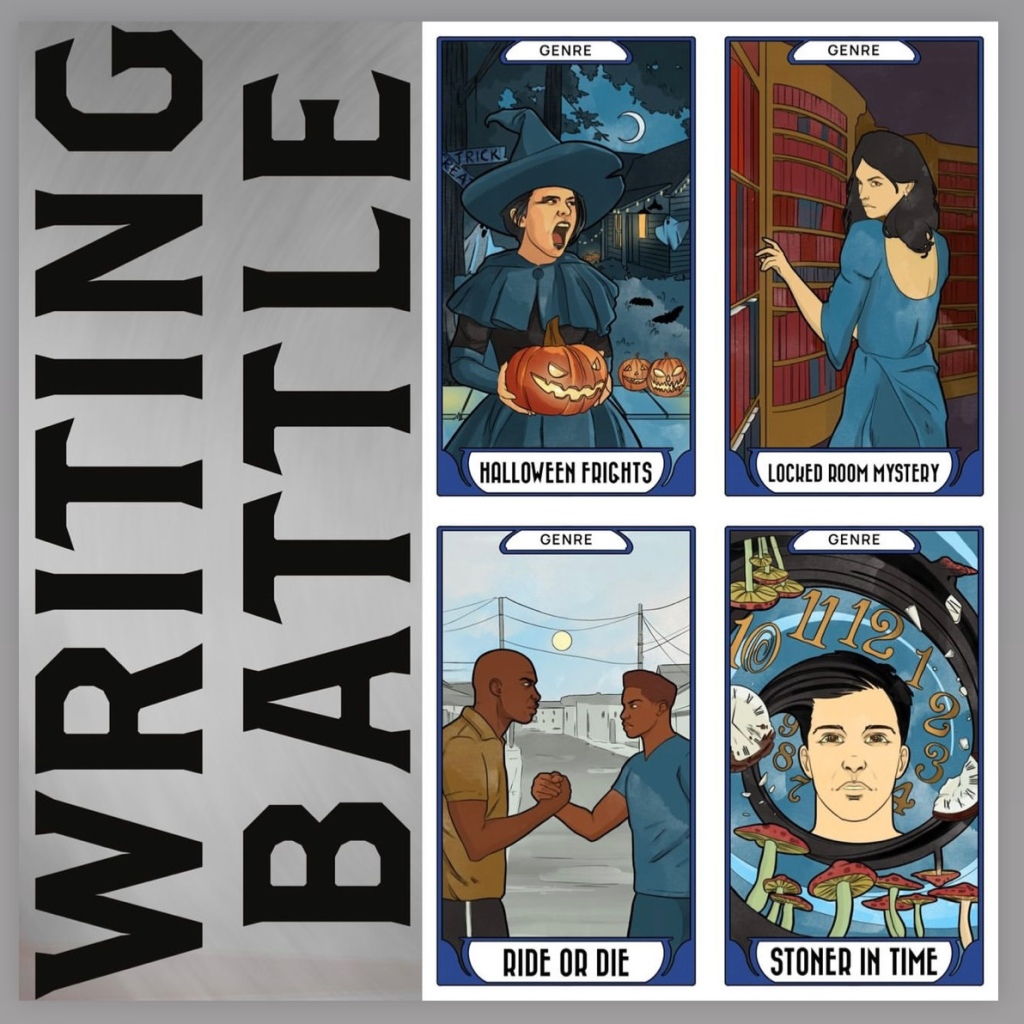
Darci: OMG! We get the scoop right here folks. I love the card collecting idea! It shouts “huge hit!” I’m super impressed with my merch, and I must say the customer service was excellent. I can’t wait to see what’s next.
Was it a tremendous undertaking adding a shop?
Teona: Long story short: Max said “I think we need a merch shop. Go.” And after panicking ever so slightly, I learned how to set up a Shopify store and a Printify print-on-demand service. It was very much out of my comfort zone at first (and perhaps a few tears of frustration spilled) but I feel I have a handle on it now and it works quite well!
Darci: You are so totally inspiring, Teona! I see the merch shop exploding in the near future. I’m trying to get up the gumption to add a shop on my website for signed paperbacks. Supposedly it’s as easy to offer a small line as it is for a larger one.
I asked this question last time, and I’ll ask again because I’m sure everyone wants to know. Who’s behind the artwork? How do you come up with so many wonderful ideas and illustrations for the slew of genre cards needed four times a year and for social media marketing?
Max: The Italian tattoo artist, Vincenzo Ingenito, does most of our artwork and he illustrated an entire 78 card tarot deck for us. We are also using Valerie P (@valerie_pl on Fiverr) for a lot of cards. We commissioned a few pieces of art from some folks from our community too. Oh! Someone is getting a Writing Battle inspired tattoo and used Vincenzo as the illustrator. The person that had the art commissioned gave us permission to use the illustration. I can’t wait for people to see it. It’s going to be a cool tattoo!
Darci: This is so fabulous! Thanks for sharing, Max. Check out Writing Battle’s Instagram page to see all the wonderful art and stay posted on everything Max just shared.
Let’s talk about the community. The WB forum is super active, and I love to see that. Do the conversations continue between the Battles?
Max: Things definitely die down in-between Battles in the Forums. I think that will change when we have more of a reason to come back to the site when a Battle is not underway. But you know – in the end, that’s probably healthy. Battles are pretty intense (haha it’s not just the name). People get fairly invested in each one and it’s a bit of an emotional rollercoaster. It’s probably a good thing to take a break and recoup before the next Battle. That being said, we are working on features that might keep more Ravens** engaged in-between Battles. **Our community members now refer to themselves as Ravens which is fairly bad ass.
Darci: That’s about what I expected. I think WB has settled into a very nice ebb and flow with the four yearly Battles.
Teona has been awesome about reading and sharing works by WB’s members and the newsletter is generous with its shoutouts. You’ve truly made it feel like family and it’s clear from your adorable Instagram reels that WB is a family affair in your household. What are some of the other activities going on in the community and what are a few of the recent highlights?
Teona: For a hot second we were going to plan an in-person meet up because we basically wanted an excuse to hang out with WB’s incredible community in person. It fell through because it turned out to be a bit more of an endeavor than we anticipated and I won’t be able to put in the hours for something like that until at least this time next year. We’re now looking at an in-person meet up for 2025!
Darci: Okay, now my heart is really pounding. Another sneak peek at what’s coming! A WB Retreat would be phenomenal!!
What routines have you found to be helpful to keep the productivity and creativity flowing for Writing Battle? Any tips or tricks you can share about staying organized and balanced with other aspects of daily and family life?
Teona: One thing we are looking to set boundaries on this year involves not trying to implement new features during a Battle. The intensity of programming AND running a Battle can take its toll and Max gets completely burnt out and needs time to decompress. So we have “official meetings” at least twice a week. It sounds kinda funny to me since we’re husband and wife and these conversations can happen at any time of day (and they do) but actually setting time aside with the purpose to brainstorm and discuss what’s working and what’s not is so valuable to how we maintain boundaries between work and home lives.
Max: Yeah, no new features while a Battle is underway is going to be huge. The plan is to get a lot done in-between Battles so during a Battle, I can just focus on the community and not coding new features.
Darci: I really appreciate getting a glimpse into what you’ve learned as you grow with Writing Battle.
What advice can you offer to those who would love to leave their mundane jobs to pursue their dreams?
Max: Oh, if you’re reading this and you are thinking about starting your own business or side hustle, go for it! Even if Writing Battle was deemed a failure and shut down for whatever reason, this entire journey would still have been worth it. I’ve met the coolest people and have learned so much from them – and learned a lot about myself. It’s hard work and expect to work long hours, but there is a price to pay for not pursuing your dreams too. I promise that you won’t regret it.
Teona: Have a “yes-buddy” in your corner. There are going to be people who give unsolicited advice and who are going to help you find reasons not to follow a dream. There has to be at least one person in your life who will listen and encourage you without question. And I know for Max and for Writing Battle, this person wasn’t always me… I became a bit more certain about WB when it transitioned from an amorphous and iterative early idea to an actual thing with rules and a schedule. Max’s brother has ALWAYS understood what WB could be way before it was WB.
Great insights, and what a blast it has been catching up. Any parting words of advice?
Max: Thank you, Darci! My parting words of advice would be to reach out to Teona at teona@writingbattle.com if you are someone that is thinking of participating in Writing Battle but are a bit short on cash at the moment. Our amazing community organized a “Spartan Fund” to help fund entry fees. Please reach out to her if this is you or if you know someone that may appreciate a Battle ticket.
Teona: Thanks so much for having us again! We love the questions and are grateful for the opportunity to connect with you and your followers!
Darci: Thank you both so much!
You can follow Writing Battle on Instagram and Facebook.
